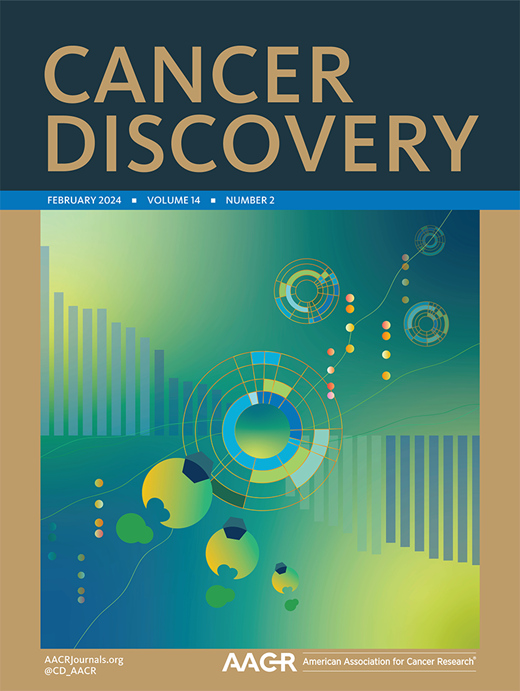微生物代谢途径引导对免疫检查点阻断治疗的反应。
IF 33.3
1区 医学
Q1 ONCOLOGY
引用次数: 0
摘要
研究已经确定了特定微生物组衍生细菌与免疫检查点阻断(ICB)疗效之间的联系。然而,这些物种在研究中缺乏一致性,它们的免疫调节机制仍然难以捉摸。为了了解微生物组对ICB反应的影响,我们研究了其功能容量。利用ICB治疗患者的泛癌症宏基因组学数据,我们发现社区水平的代谢途径在个体之间是稳定的,使其适合预测ICB反应。我们发现了几个与反应显著相关的微生物代谢过程,包括甲基erythritol phosphate (MEP)途径,该途径与反应相关,并诱导了患者源性肿瘤类器官中Vδ2 T细胞介导的抗肿瘤反应。相反,核黄素合成与ICB耐药性相关,其中间体诱导粘膜相关不变T (MAIT)细胞介导的免疫抑制。此外,肠道代谢组学显示,在肿瘤内MAIT细胞丰富的患者中,高核黄素水平与较差的生存有关。总的来说,我们的结果强调了代谢物介导的微生物组-免疫细胞串扰的相关性。本文章由计算机程序翻译,如有差异,请以英文原文为准。
Microbial metabolic pathways guide response to immune checkpoint blockade therapy.
Studies have identified a link between specific microbiome-derived bacteria and immune checkpoint blockade (ICB) efficacy. However, these species lack consistency across studies and their immunomodulatory mechanisms remain elusive. To understand the influence of the microbiome on ICB response we studied its functional capacity. Using pan-cancer metagenomics data of ICB-treated patients, we showed that community-level metabolic pathways are stable across individuals, making them suitable to predict ICB response. We identified several microbial metabolic processes significantly associated with response, including the methylerythritol phosphate (MEP) pathway, which was associated with response and induced Vδ2 T cell-mediated anti-tumor responses in patient-derived tumor organoids. In contrast, riboflavin synthesis was associated with ICB resistance, and its intermediates induced mucosal-associated invariant T (MAIT) cell-mediated immune suppression. Moreover, gut metabolomics revealed that high riboflavin levels were linked to worse survival in patients with abundant intratumoral MAIT cells. Collectively, our results highlight the relevance of metabolite-mediated microbiome-immune cell crosstalk.
求助全文
通过发布文献求助,成功后即可免费获取论文全文。
去求助
来源期刊

Cancer discovery
ONCOLOGY-
CiteScore
22.90
自引率
1.40%
发文量
838
审稿时长
6-12 weeks
期刊介绍:
Cancer Discovery publishes high-impact, peer-reviewed articles detailing significant advances in both research and clinical trials. Serving as a premier cancer information resource, the journal also features Review Articles, Perspectives, Commentaries, News stories, and Research Watch summaries to keep readers abreast of the latest findings in the field. Covering a wide range of topics, from laboratory research to clinical trials and epidemiologic studies, Cancer Discovery spans the entire spectrum of cancer research and medicine.
 求助内容:
求助内容: 应助结果提醒方式:
应助结果提醒方式:


